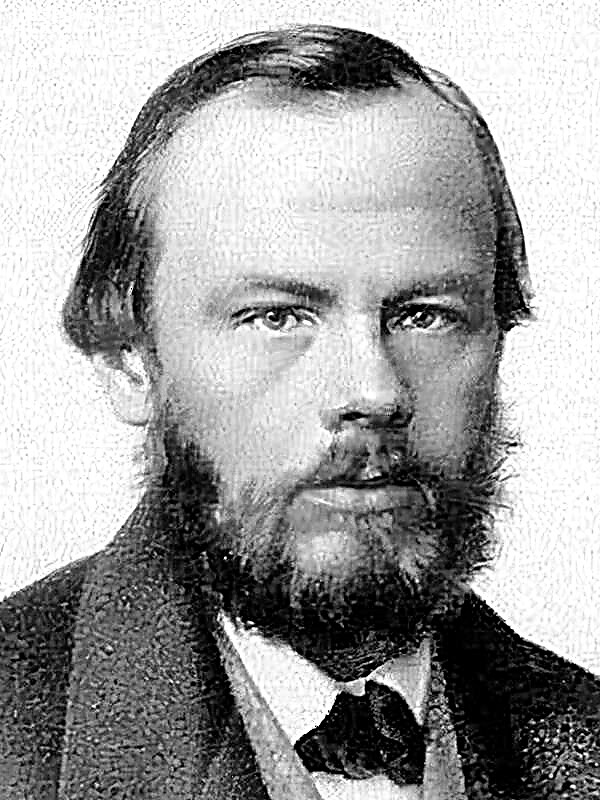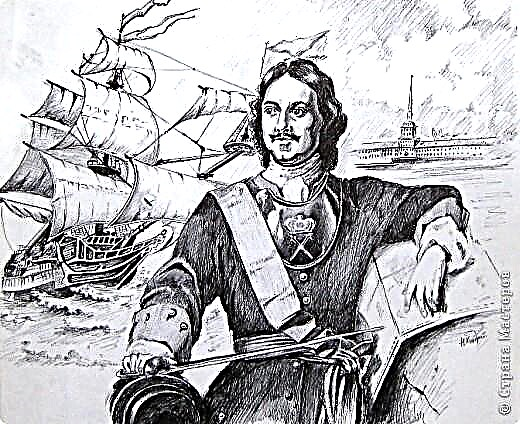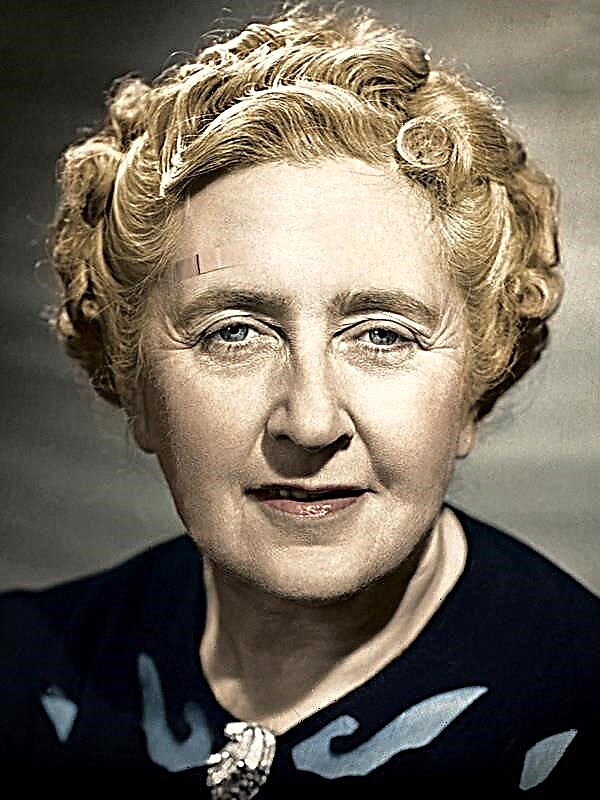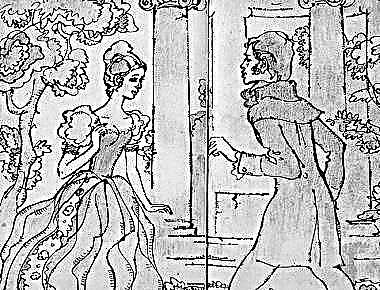Turgenev's works are full of various events, where every action and detail plays an important role. And sometimes there is not enough time to read the story again or find a certain moment. That is why there is a brief retelling of the story "Asya" in chapters to remind the student of what they read. And for a complete understanding of the book, you need to carefully study the analysis of the work.
Chapter 1
The story begins with the recollections of Mr. N. N., when, at the age of twenty-five, he “broke free” and began his carefree journey without a special purpose. He liked to watch people, listen to their stories and have fun with everyone. On the way, a widow broke her heart, abandoned him for the sake of a foreign lieutenant.
For this reason, the narrator arrived in the small town of Z. in Germany, to be alone with his thoughts. He immediately liked the town; the atmosphere that prevailed there conquered him. He often walked around the town and sat next to the Rhine river on a bench under an ash tree. Once, sitting in a familiar place near the river, he heard music coming from the neighboring town of L., located on the opposite bank. After asking a passerby, he found out that it was a commerce - a solemn feast arranged by students of one brotherhood. Having become interested, the hero immediately decided to go there.
Chapter 2
Strolling in the crowd and becoming infected by joyful madness, the narrator met two compatriots who also traveled for pleasure. With Gagin, who immediately seemed to him a good-natured man, and his sweet sister, Asya.
They invited him to their country, in their home. At dinner, Asya was shy at first, but then she began to ask questions herself. Two hours later, she retired from the table, saying that she really wanted to sleep. Soon, the hero himself went home, thinking about his adventure along the way. He tried to understand why he was so happy, and falling asleep, he remembered that he had never thought of a woman who had broken his heart once a day.
Chapter 3-4
The next morning Gagin came to the narrator. Sitting in the garden, he shared his plans for the fact that he always wanted to do painting. In response, N. spoke about his bitter experience with the widow, but he did not receive much sympathy from the side of the interlocutor. After the conversation, the men went home to Gagin to see etudes. And having finished, they went to look for Asya, who went to the "ruins".
It was a quadrangular tower, located on top of a cliff. On the ledge of the wall, next to the abyss, Asya sat. She literally played with men, making them nervous. And indeed, after this, Asya abruptly jumped off the ruins, asked for a glass of water from an old woman sitting next to her and ran again to the rocks to water the flowers. Later, she went to Frau Louise, and her brother and his guest were left alone, and N. realized that every day he became more and more attached to Gagin.
In the evening, the hero went home in a terrible mood. Asya did not give him rest, he also began to doubt that she was the sister of Gagin. In such thoughts, he did not even read the widow's letter intended for him.
Chapter 5-6
Asi's behavior was different the next day. This time she was completely different: there was no pretense that was always in conversation, she was real. After spending the day with Gagin, the hero returned home, wishing that the day would end soon. Falling asleep, he noted that Asya was like a chameleon.
For several weeks N. visited the Gagins, where he recognized Asya from a different angle. In recent days, she looked rather upset, there was no trace of her cheerful mischief.
Once N. heard a conversation between Gagin and Asya, where the girl reported that she wanted to love only him. This confused the protagonist, who wondered why it was necessary to build this comedy.
Chapter 7-8
Due to insomnia, N. went on a trip to the mountains for three days in the hope of rest and dispel from thoughts so gnawing at him. At home, he found a note from Gagin, where he expressed his frustration because he was not invited with him. Therefore, the hero moved to the other side to apologize.
Later, Gagin, accompanying the hero home, decided to share a story about his family. His father, on the advice of his brother, gave his son to be brought up in St. Petersburg, where he first graduated from the cadet school and later enrolled in the guards regiment. Once, having arrived home, Gagin saw a girl (she was about ten years old), whom his father adopted, since she was an orphan. After a couple of years, his old man died, bequeathing his son to take care of Asa. Gagin learned from his servant that this was his sister: the daughter of his father and former maid. But he kept his promise and began to patronize her.
Initially, the girl was scared, but after a while she got used to Gagin and fell in love with him as a brother. After her training in a boarding house, which lasted four years, they went on a trip to different cities. This story captivated the hero and made him feel relieved at heart.
Chapter 9-10
Upon returning, N. went for a walk with Asya, who was glad of his return, which he immediately informed. She asked him what he liked about women, and, embarrassed, quoted him from the lines of "Eugene Onegin," vividly imagining herself in the image of Tatyana. Later, the girl noticed that she was sorry that they were not birds and could not “drown in the blue,” however N. said that there were such high feelings that could raise a person.
Later they began to waltz to the accompaniment of Lanner. At that moment, the man saw Asi's feminine side, which made him look at the girl in a different way. On the way back, the hero began to remember last night, and a sense of anxiety mixed with happiness caught him on the road.
Chapter 11-12
Having caught Gagin in an agitated state at the canvas, N. decided to talk with Asya, who, as usual, was going to leave, but still remained. The girl was sad, and noticed that she was rather rude and uneducated. But the man objected to her, saying that she was unfair to herself. Gagin interrupted their conversation, asking for advice on the picture.
An hour later, Asya returned and brought up the issue of death, where she asked the storyteller that he would be sorry if she died. She was worried that he might find her frivolous, while she was always honest with him. In parting, she said that today a man thinks badly of her. Approaching the Rhine, the hero asked himself: "Does she really love me?"
Chapter 13-14
This question remained with him the next day, but when he arrived at the Gagins, he saw only a brief glimpse of happiness, when the heroine came to him only to say that she was unwell. The next day N. walked aimlessly around the city until he was hailed by a boy who handed over a note from Asya, in which she made an appointment at the chapel.
While the hero was rereading the note at home, Gagin stopped by, reporting that Asya admitted at night that she was in love with N. She was overcome by fear that the man despised her, and she asked her brother to leave the city immediately. However, Gagin decided to personally ask his friend about the situation. The explanation touched the narrator, he admitted that he liked Asya, but he did not know what to do. It was decided that the hero should say his answer in the evening, after talking with Asya.
Chapter 15-16
Having crossed the river at the appointed time, the hero noticed a boy who told him that their meeting with Asya was being transferred to the house of Frau Louise. At the same time, the narrator came to the realization that everything must be honestly told to the playing woman, their wedding is simply unacceptable.
At the appointed hour, N. went to the house, where an old woman opened the door for him, escorting him upstairs to a small room. Entering the room, the hero noticed a frightened Asya sitting near the window. He felt sorry for her; he took her hand, sitting next to her. There was silence, after which the man could not resist his feelings, but then he pulled himself together, remembering the conversation with Gagin. He accused Asya of the fact that, by her grace, her brother knows about their common secret. For this reason, they should leave and peacefully disperse. After these words, Asya could not stand it and cried, and then completely ran out of the room.
Chapter 17-18
After the conversation, the hero went into the field, where he wanted to figure out his decision. He felt guilty for missing Asya. Remembering their last meeting, he realized that he was not ready to part with her.
That is why he resolutely went home to Asa to continue the unfinished conversation, but there he discovered that the girl had not returned there. Having separated from Gagin, the men went to look for her.
Chapter 19-20
N. ran around the whole city, but could not find her. He shouted her name and confessed her love, taking an oath to never abandon her. At times it seemed to him that he had found her, but later realized that this own imagination played such a cruel joke with him. In the end, he decided to go back to get news from Gagin.
Upon learning that Asya was found and is now sleeping, N. went home, full of hope for tomorrow, because he decided to make an offer to his chosen one.
Chapter 21-22
Learning from the maidservant the next morning about the Gagins' departure and reading a letter where his friend apologized for leaving and asked them not to look, N. decided to go after them to catch up with them. But he understands that this is impossible, because they left early in the morning.
In sadness, he wandered back until a familiar old woman called him, passing him a letter from Asya. The girl said goodbye to him, said that only one word could stop her, but the man could not pronounce it.
After reading the letter, N. immediately packed up his things and set sail for Cologne, hoping to find his comrades. But despite futile attempts, Asya’s track was lost forever. Time moved, but he could not forget it; her features haunted him forever.
In the end, the narrator summarizes that, despite the large number of women who met on his way, not one of them was able to awaken in him that amazing feeling that he had next to Asya.












